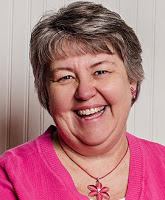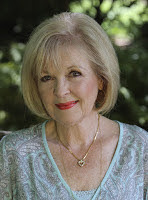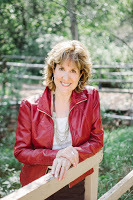Edie Melson's Blog, page 163
May 15, 2021
Thoughts on Writing Classes at a Conference
[image error]
by Tammy Karasek @TickledPinkTam
Writing conferences are still different for 2021. Many have chosen to stay with a virtual conference again this year, while others are going to be in person. Being an extrovert, I’ve enjoyed going to conferences and long for the day when those around the country can open their real doors once more instead of the Zoom link. At least that Zoom link kept us working on our craft and seeing each other’s faces since we couldn’t gather together.
Feeling nostalgic for those in-person conferences, I pulled out my notebook of notes I’ve taken over the years. I went through page by page to see what kept me madly scraping my pen across the paper. On some of the notes, I was excited to see where the lesson taught was one I’ve put into practice or at least now understood. Yet others I noticed I must not have caught on as I saw I had repeated a class at another venue.
Which got me to thinking.
I’ve heard comments made that many conferences are the same classes and teachers over and over. Or the classes are the same but different teachers are teaching them. Both statements are possibly true. I noticed I’d taken a few classes that were the same, but different teachers. I noticed something else—some same-titled classes by different teachers had more notes than the other. And not necessarily did the first class have more notes than subsequent classes after it.
It brought me to the following:You attend a class and you understand the concept, or think you do. Once home, you work on your WIP. Then you get stuck or frustrated that the piece is not working with the concept you’re trying to implement. You thought you understood it, but it’s not coming together. You consider it a fail – you can’t do it. It must be you.You attend another class on the same subject with skepticism that you’ll be able to do it, but you want to try again. But this time, the different teacher shares the same concept but in a different selection and composition of words. A light bulb moment happens and you get it. Which could be two things:In the first class, it was a very new concept to you and you got lost fast and couldn’t keep up with the lecture.You are now farther along in your writing. Concepts and lingo make more sense to you and you’re able to keep the pace with the instructions. I’d like to offer a suggestion to you as you decide which writing conference you will attend this year as well as which classes you will take. Think about where you are in your writing. What parts are still not solid for you? Do you have an issue with Plotting, Hooks, and Character Arcs? What about the next step in the process like writing the Premise, Synopsis or Proposal? Even if you have taken a class in this subject already, maybe it’s time for a same class, different teacher selection at the conference. The new teacher may have a different approach or explanation of the concept and will give you the light-bulb moment you need to propel your writing further down the path.
What about you? Have you taken a class of the same description and found yourself thinking—ah, now I get it? Please share in the comments below, we’d love to hear about it.
TWEETABLEThoughts on Writing Classes at a Conference - @TickledPinkTam on @EdieMelson (Click to Tweet)
 You’ll find Tammy using humor and wit to bring joy and hope to every aspect in life. She’s gone from down and defeated from a past filled with bullying and criticism from family to living a Tickled Pink life as she believes there is always a giggle wanting to come out! All because of HIM.
You’ll find Tammy using humor and wit to bring joy and hope to every aspect in life. She’s gone from down and defeated from a past filled with bullying and criticism from family to living a Tickled Pink life as she believes there is always a giggle wanting to come out! All because of HIM.
She’s the Social Media Coordinator for the Blue Ridge Mountains Christian Writers Conference. President of ACFW Upstate SC, Past-President and current member of Word Weavers Upstate SC and Past-President of Cross N Pens Writers Group. She’s a member of My Book Therapy/Novel Academy. A writing team member for The Write Conversation, contributor for the Learn How to Write a Novel Blog and others. Published in the Divine Moments Compilation Book—Cool-inary Moments.
She’s married to her college sweetheart Larry, a mom to their grown daughter, Kristen and excited to add a son-in-law in 2021. Born and raised in Ohio, she now lives in South Carolina. Connect with Tammy at HTTPS://TAMMYKARASEK.COM.
by Tammy Karasek @TickledPinkTam
Writing conferences are still different for 2021. Many have chosen to stay with a virtual conference again this year, while others are going to be in person. Being an extrovert, I’ve enjoyed going to conferences and long for the day when those around the country can open their real doors once more instead of the Zoom link. At least that Zoom link kept us working on our craft and seeing each other’s faces since we couldn’t gather together.
Feeling nostalgic for those in-person conferences, I pulled out my notebook of notes I’ve taken over the years. I went through page by page to see what kept me madly scraping my pen across the paper. On some of the notes, I was excited to see where the lesson taught was one I’ve put into practice or at least now understood. Yet others I noticed I must not have caught on as I saw I had repeated a class at another venue.
Which got me to thinking.
I’ve heard comments made that many conferences are the same classes and teachers over and over. Or the classes are the same but different teachers are teaching them. Both statements are possibly true. I noticed I’d taken a few classes that were the same, but different teachers. I noticed something else—some same-titled classes by different teachers had more notes than the other. And not necessarily did the first class have more notes than subsequent classes after it.
It brought me to the following:You attend a class and you understand the concept, or think you do. Once home, you work on your WIP. Then you get stuck or frustrated that the piece is not working with the concept you’re trying to implement. You thought you understood it, but it’s not coming together. You consider it a fail – you can’t do it. It must be you.You attend another class on the same subject with skepticism that you’ll be able to do it, but you want to try again. But this time, the different teacher shares the same concept but in a different selection and composition of words. A light bulb moment happens and you get it. Which could be two things:In the first class, it was a very new concept to you and you got lost fast and couldn’t keep up with the lecture.You are now farther along in your writing. Concepts and lingo make more sense to you and you’re able to keep the pace with the instructions. I’d like to offer a suggestion to you as you decide which writing conference you will attend this year as well as which classes you will take. Think about where you are in your writing. What parts are still not solid for you? Do you have an issue with Plotting, Hooks, and Character Arcs? What about the next step in the process like writing the Premise, Synopsis or Proposal? Even if you have taken a class in this subject already, maybe it’s time for a same class, different teacher selection at the conference. The new teacher may have a different approach or explanation of the concept and will give you the light-bulb moment you need to propel your writing further down the path.
What about you? Have you taken a class of the same description and found yourself thinking—ah, now I get it? Please share in the comments below, we’d love to hear about it.
TWEETABLEThoughts on Writing Classes at a Conference - @TickledPinkTam on @EdieMelson (Click to Tweet)
 You’ll find Tammy using humor and wit to bring joy and hope to every aspect in life. She’s gone from down and defeated from a past filled with bullying and criticism from family to living a Tickled Pink life as she believes there is always a giggle wanting to come out! All because of HIM.
You’ll find Tammy using humor and wit to bring joy and hope to every aspect in life. She’s gone from down and defeated from a past filled with bullying and criticism from family to living a Tickled Pink life as she believes there is always a giggle wanting to come out! All because of HIM.She’s the Social Media Coordinator for the Blue Ridge Mountains Christian Writers Conference. President of ACFW Upstate SC, Past-President and current member of Word Weavers Upstate SC and Past-President of Cross N Pens Writers Group. She’s a member of My Book Therapy/Novel Academy. A writing team member for The Write Conversation, contributor for the Learn How to Write a Novel Blog and others. Published in the Divine Moments Compilation Book—Cool-inary Moments.
She’s married to her college sweetheart Larry, a mom to their grown daughter, Kristen and excited to add a son-in-law in 2021. Born and raised in Ohio, she now lives in South Carolina. Connect with Tammy at HTTPS://TAMMYKARASEK.COM.
Published on May 15, 2021 22:00
May 14, 2021
Writing Restored by the Sabbath

by Emme Gannon @GannonEmme
Sunday was a sacred day to my grandmother—a day where she would abstain from all manual labor. From her morning worship experience at church, she would reflect on her life and His purpose for her being. In the afternoon our family would gather at her modest home to enjoy a meal that she had laboriously prepared the day before and had only to warm in the oven for all to enjoy.
For my Nanny, concentrating solely on the Lord and His gift of family on that day was her lifeline. It was where the voices of the world became interrupted by the voice of God. It was where His divine orders became illuminated and truth revealed. Having been orphaned at age five, she learned early the importance of knowing His voice and direction, lessons that would ground her when she was widowed at a young age and left to care for her three children.
Sundays at my grandmother’s house taught me the importance of setting aside a day to reflect on what is really important. School and petty differences were all set aside as we gathered after church in the sacred space of my grandmother’s home. Lest we forget what that day was about, she’d placed lovely framed scriptures and reminders in every room. One saying that had been cleverly placed on the dining room wall especially stayed with me and my brother and our cousins. One that we have taught our own children. “Only one life, it will soon be past, only what’s done for Christ will last.” As we followed scents of homemade buttermilk biscuits, fried chicken, and cinnamon cake, that plaque on the wall would catch our eyes. It soon became tattooed in our minds, ready to blink like a neon light at the most opportune times.
It is out of the place of rest and relaxation that our bodies, souls, and spirits refresh and change course from the responsibilities of the world to the realm of the holy. A place where God meets our waiting heart and is able to whisper meaning into all the turmoil and busyness of the past six days. We reconnect. We contemplate. We abandon our will for God’s. We are restored once again from the kingdom of the world to the kingdom of God.
Resting on the Sabbath used to be an American tradition until states began allowing commerce to continue on Sunday. As more and more companies embraced the seven-day week, Americans easily became caught up in the constant busyness of our world. Sunday soon became a day to catch up on what we’d not had time to do in the past hectic six days.
How does constant busyness affect the writer?
Jesus said in Matthew 12:34, “Out of the abundance of the heart the mouth speaks.” Or, we might say, the writer writes. What we pour into our hearts is what flows out of our being and into our writing. The only way we can truly write from God’s heart is to know His heart. The only way to know His heart is to take time to meditate on His Word and the power of who He is and the individual purpose He has for each of us. By rejecting time spent in rest before the Lord, we risk losing our soul to worldly thinking.
Being the best you can isn’t enough. We’ll never reach our potential by striving. Only by surrender to the God who formed us in our mother’s womb and whose love for His children is a creative force that can only be known by intimacy with Him. By resting in His presence, we enter the creative world of the spirit that is unknown to those who are living by the standards of the world. It’s a challenge in today’s world to set aside the Sabbath as a day of rest and meditation, but a choice that has untold blessings.
TWEETABLEWriting Restored by the Sabbath - @GannonEmme on @EdieMelson (Click to Tweet)
 Emme Gannon is a wife, mother, and grandmother who loves to write stories that stir the heart. Her award-winning writing has appeared in Focus on the Family magazine, several anthologies, and numerous newsletters. She just completed her first novel.
Emme Gannon is a wife, mother, and grandmother who loves to write stories that stir the heart. Her award-winning writing has appeared in Focus on the Family magazine, several anthologies, and numerous newsletters. She just completed her first novel.
Published on May 14, 2021 22:00
May 13, 2021
3 Ways to Encounter God at Your Next Writing Conference

by Joshua J. Masters @JoshuaJMasters
The hurried pace of a writing conference can rattle the most seasoned author—after all, we want to get the most out of the experience. But with so much to do and learn, it’s easy for the Christian Writer to leave God on a shelf at home.
You can’t actually do that, of course. God is going to be at the conference whether you want Him there or not. The real question isn’t whether He’s present but how present you’re willing to be with Him.
Here are three ways we can be intentional about having an encounter with God at our next writing conference.
1. PREPARE TO ENCOUNTER GOD.
Every time I attend the Blue Ridge Mountains Christian Writers Conference, I spend weeks preparing for the encounters I hope to have with agents, publishers, and editors. My conference binder is a glorious ark of research and planning. The one-sheets, pitches, and sample pages I’ve labored over are nestled in their color-coded folders, while pages of workshop schedules and the profiles of industry experts attending the conference lovingly nest in laminate sleeves.
I don’t think I’m alone in this kind of preparation, but how much time do we spend preparing to encounter God at our writing conference? In our mad rush to seek out the people we want to meet, we can forget Christ is the most important industry expert there.
It’s easy to get caught up in the excitement and busyness of the moment, so we need to create a plan for when and how we’ll meet with God before we get there.When will I spend quiet time with God every day?What Bible passages or devotionals will I meditate on?What do I need God to remind me about each day?Put your answer to those questions in your miracle binder or in your phone, because if we put as much excitement and preparation in meeting with God during the conference as we do an agent, it will transform the way we view the event, our calling, and every meeting we have.
2. BREATHE WITH GOD.
Writers are excellent at dashing through a crowded meeting hall to find the one table where an acquisitions editor from Zondervan is sitting, but we’re not always good about breathing. In fact, we may be completely out of breath by the time we get to the sign-up sheet. But the more frantic we are, the less connected to God we are.
That’s why it’s important to look for ongoing opportunities to seek God and worship Him—even if it’s just for a moment as we walk between workshops.
Scripture says, “The heavens declare the glory of God; the skies proclaim the work of his hands. Day after day they pour forth speech…” (Psalm 19:1-2 NIV). Everything around you whispers the sovereignty of God.
Conferences usually bring you to a new location. Look for His glory in the flowers, trees, or sky throughout the day and breathe. Breathe with God as you look at the mountains in the distance or feel the breeze. You can have a private worship service as you walk between every appointment.
This will not only keep you connected to God throughout the day, but it will help keep you calm and prepare you for your next appointment.
The more aware we are of God’s presence, the less pressure we feel when we do get to sit down with Mr. Zondervan, Ms. Tyndale, or Dreamy McAgent.
3. ASK GOD FOR A MISSION EVERY DAY.
I can tell you from experience it’s easy for a Christian writer to become self-focused rather than Christ-focused at a writing conference (or so I’ve heard).
God has a purpose for you at that conference beyond what He wants to do in your writing career. We all have things we want to accomplish at a conference, and we shouldn’t abandon those goals. But if you want to guarantee an encounter with God at the conference, be courageous enough to pray this every morning:
“Father, I don’t know what you have in store for me today, but wherever we go, interrupt my plan. Give me a mission beyond my own desires and give me the eyes to see the opportunities to build someone else up.”
That’s a brave prayer. It requires us to completely trust God with the outcome of our own goals and actively look for ways He wants us to help others fulfill theirs.
Here’s some other questions you might ask God throughout the day:Who do you want me to encourage in this room?Who can I advocate for?When do You want me to stop talking so someone else can talk?What appointment do You want me to give up so someone else can have it?Which people do You want me to introduce to one another?Who can I help equip for what You want to do in their lives?Whose heart are You preparing for me to share what you showed me in our quiet time this morning?One of the best ways to remain Christ-focused is to be others-focused. Sometimes the greatest work God does at a writing conference doesn’t happen in a 15-minute industry appointment inside the main hall, but in a divine appointment on the rocking chairs outside the dining hall.GOING HOME
So many Christians leave a writing conference discouraged, questioning their calling, and doubting their talent. If we’re honest, some even leave doubting God. It’s okay to be disappointed about a situation, but discouragement is a question of identity and purpose.
When we’re intentional about encountering God at the conference, it answers all our questions of self-doubt because we see God working through us the entire trip.
Maybe I didn’t get the contract I wanted, but it’s hard to believe God doesn’t have a plan for me when He puts me in just the right place to encourage someone who was about to give up.
It’s impossible to believe He’s distant when I’ve seen Him between every workshop.
It’s difficult to believe He’s not in control when I’ve had 5 divine appointments with people who weren’t in my binder.
And maybe this is the conference you come home from knowing there’s a handful of new people praying for your walk with Christ and your career rather than the same stack of business cards you’ll lose in a drawer.
Let’s make sure we put our name on God’s appointment sheet.TWEETABLE3 Ways to Encounter God at Your Next Writing Conference - @JoshuaJMasters on @EdieMelson (Click to Tweet)
 Joshua J. Masters is a pastor, author, and speaker with a heart for encouraging others. His book on prayer,
AMERICAN PSALMS
, was a Serious Writer’s Book of the Decade finalist. He’s been featured on CBN Television, HIS Radio, the Light Radio Network, and worked in the film industry as a member of SAG-AFTRA performer. He is a regular teacher and speaker for large groups. A self-proclaimed sci-fi and comic book geek, Josh loves film, pop culture and is known in some circles as THE BAT PASTOR. Joshua was raised in the White Mountains of New England and now serves as a pastor in South Carolina where he lives with his wife, Gina, and their miniature poodle, FRANKLIN THE PUP, who is the subject of his latest book. Josh would love to connect with you on his website, JOSHUAJMASTERS.COM
Joshua J. Masters is a pastor, author, and speaker with a heart for encouraging others. His book on prayer,
AMERICAN PSALMS
, was a Serious Writer’s Book of the Decade finalist. He’s been featured on CBN Television, HIS Radio, the Light Radio Network, and worked in the film industry as a member of SAG-AFTRA performer. He is a regular teacher and speaker for large groups. A self-proclaimed sci-fi and comic book geek, Josh loves film, pop culture and is known in some circles as THE BAT PASTOR. Joshua was raised in the White Mountains of New England and now serves as a pastor in South Carolina where he lives with his wife, Gina, and their miniature poodle, FRANKLIN THE PUP, who is the subject of his latest book. Josh would love to connect with you on his website, JOSHUAJMASTERS.COM
Published on May 13, 2021 22:00
May 12, 2021
Add Videos to Your Book Launch Campaign

by Julie Lavender @JLavenderWrites
When it came time to create a book launch campaign about a year ago for my upcoming book, 365 Ways to Love Your Child: Turning Little Moments into Lasting Memories, published by Revell, I recalled several faculty members of recent conferences, namely Blue Ridge Mountains Christian Writers Conference and Florida Christian Writers Conference, touting the popularity of videos on social media.
“Engage followers with brief videos,” they said, “and give them some great content.”
I loved the idea of videos, but I didn’t love the idea of videos of ME. So, the next-best-thing—the most-wonderful-idea-instead—was to include videos of others on my social media pages.
Several months before my book launched, I sent out emails and Facebook messages to various friends and author friends with an announcement about my book and a request to submit a video to me of one way they show/showed love to a child. I asked for brief videos, one to three minutes or even less than a minute. I also asked the contributor to share with me a bio and any links they’d like to share.
I specifically reached out to many of my writer friends, because I know the value of supporting other writers and their projects. Once I collected a handful of videos for my files, I initiated the campaign.
I chose to post three videos per week on my social media pages, with a brief intro. In the comments of each social media post, I shared the contributor’s bio and whatever information they wanted me to share, which might be: a link to their website, a link to their blog, links to their books, links to their non-profit, or information about their business.
I enjoyed supporting my friends’ writing efforts and touting their current projects or new releases. I consider the video posts a win-win for several reasons. I’ve gained followers who became part of my target audience, drawing them to my sites that show my book cover on the wall. I shared others’ creative, unique ideas to show love to a child. And I helped my friends market their writings or boost their careers. Many of those who contributed a video would then share my post on their social media pages, which helped spread the word about my book even more.
My campaign cost practically nothing financially. I spent time reaching out to video contributors for requests, but the return on my time investment feels like a huge success to me. My numbers have grown on social media; I engage consistently with those who comment; I’ve supported my writing friends simultaneously while they bless my followers with unique ideas for loving their children, and I’ve continued to “soft-sell” my book inadvertently with mentions that accompany the posts. Most of the time, the contributors don’t even mention my book, as per my instruction, though I sometimes add a comment such as, “My writing friend has a great suggestion for showing love to a child to help me continue the launch of my book, 365 Ways to Love Your Child: Turning Little Moments into Lasting Memories.”
The goal of my campaign was three-fold:
1) To establish awareness of and create excitement for my book, 365 Ways to Love Your Child: Turning Little Moments
2) To build a community of potential target audience members of 365 Ways and to engage and interact with that community regularly, encouraging them to make family memories along the way
3) To support fellow authors, professionals, and others by including them in my campaign
I firmly believe it takes a village to launch a book, and I’ve really enjoyed building and supporting that village over the course of the last year with the more than 130 videos I’ve posted on my social media. With the help of friends, mostly fellow writers, I feel like my video campaign met and exceeded all three of my goals.
Each time I attend a writers conference, I learn a wealth of valuable tips and info about writing and marketing. Putting the video suggestion into action turned into a grand adventure. I can’t wait to see what I learn at this year’s conferences! I look forward to seeing you there!
TWEETABLEAdd Videos to Your Book Launch Campaign - @JLavenderWrites on @EdieMelson (Click to Tweet)
 Julie Lavender would love to connect with you on social media or at julielavenderwrites.com. She invites you to enjoy her friends’ videos about showing love to a child on her personal Facebook page or the Facebook group page, 365 Ways to Love Your Child. “Just click on the videos tab and find some unique ways to show love to a child or grandchild,” Julie says. “And, I’m always looking for new videos, too, if you want to join my ‘village.’ Oh, and look for me at Blue Ridge in just a couple of weeks! Can’t wait to see you there!”
Julie Lavender would love to connect with you on social media or at julielavenderwrites.com. She invites you to enjoy her friends’ videos about showing love to a child on her personal Facebook page or the Facebook group page, 365 Ways to Love Your Child. “Just click on the videos tab and find some unique ways to show love to a child or grandchild,” Julie says. “And, I’m always looking for new videos, too, if you want to join my ‘village.’ Oh, and look for me at Blue Ridge in just a couple of weeks! Can’t wait to see you there!”
Published on May 12, 2021 22:00
The Importance of Copyediting for Writers

by Linda Gilden @LindaGilden
“We just published a similar article.”
“The subject doesn’t meet our editorial needs.”
“This article is not a good fit for our publication.”
Those are phrases you often hear from editors as you submit manuscripts to their publications. But the one thing you don’t want to hear from an editor is, “Your manuscript is not well-edited so we will have to pass.”
Just getting started writing? Did you know that you have not only become a writer, but you have also become an editor. Once you have a completed a project, you don’t just breathe a sigh of relief. You give your writing time to sit for a few days then go back to work on it, this time to edit what you have written.
Many beginning writers get types of editing confused. There are proofreaders, editors and copyeditors. The last two are very similar.
Proofreading is a less detailed form of editing which includes grammar, spelling, spacing, consistency, information layout, and minor items. It is always good to request a proofread after your book has been typeset. Often minor errors occur during typesetting that need to be fixed.
Copyediting is more in-depth. Not only does it include the items above, copyediting includes making the writing clearer, checks and fixed facts, looks for inconsistencies, points out and changes redundancies, and makes the writing cohesive and more lively.
How do you learn to edit?
Several practices will increase your knowledge of editing and your editing skills. The best way to do that is to edit. Practice on everything you write and keep the style sheet and Chicago Manual of Style handy. When I first started editing, I did so with the newest edition of Chicago Manual of Style in my lap! As you are learning, you want to make sure you are learning the most recent rules since that is what publishing professionals will use.
If you have a writer friend, offer to swap work for editing. The more you can practice, the better editor you will become. Ask your friend to have a short discussion about articles he or she edits so you can learn from the corrections. If your “editor” prefers, notes can be included in the margins of your manuscripts where you can read and reread them as you learn.
When you receive a rejection from a publishing house professional and the editor has made some suggestions, take note of those and apply them to your next project. Learn from every comment made about your work. Read widely about how to edit. Look for lists that will tell you the most common editing mistakes and use those to tighten up your work.
Remember nothing you write is ever wasted. Either it is good practice as you grow your writing or it is a good lesson as you are learning how to make your writing the best it can be. Is there a specific comment you have received from an editor that has made you realize the importance of editing? Share it with us in the comments.
TWEETABLEThe Importance of Copyediting for Writers - @LindaGilden on @EdieMelson (Click to Tweet)
 Linda Gilden is an award-winning writer, speaker, editor, certified writing and speaking coach, and personality consultant. Her passion is helping others discover the joy of communicating with excellence. In the midst of all the busyness, Linda’s favorite activity is floating in a pool with a good book surrounded by splashing grandchildren—a great source of writing material! www.lindagilden.com
Linda Gilden is an award-winning writer, speaker, editor, certified writing and speaking coach, and personality consultant. Her passion is helping others discover the joy of communicating with excellence. In the midst of all the busyness, Linda’s favorite activity is floating in a pool with a good book surrounded by splashing grandchildren—a great source of writing material! www.lindagilden.com
Published on May 12, 2021 03:22
May 11, 2021
Zoom Fatigue for Writers Validated

by Susan U. Neal @SusanNealYoga
Adverse Effects of Zoom A recent study confirmed that Zoom fatigue is real. Zoom, Microsoft Teams, FaceTime, or other video calls are taxing on the human mind. Last year via Zoom I led a monthly Word-Weaver Christian Writers Group meeting. After the two-hour meetings I felt utterly wiped out. My eyes felt like they were bulging, and I couldn’t concentrate on any major work projects for the rest of the day. I was experiencing Zoom fatigue. Can you relate?
We have transitioned from physical to digital interactions due to pandemic. These video conferencing platforms have provided excellent value, but at a cost to our bodies and minds.
During the video conferencing we stare into a computer screen, which is unnatural and causes us to be on high-alert. This elevated alert state disrupts the biological rhythm of the body. During video meetings people feel the need to exaggerate their nonverbal communications through nodding, thumbs up, clapping, etc. Being more conscious of nonverbal cues adds to the brain’s cognitive load. This overload causes fatigue.
The study found that participants on the screen can feel mirror anxiety—a psychological phenomenon where seeing oneself in a mirror heightens self-awareness. For some, this may create internal stress. Staring at our ourselves on the screen causing us to think—should we smile how do we look, should we stare at the camera so people watching think we are looking at them or should we stare at the person on the screen. All of this is confusing to the mind! In addition, social judgement gets blended into the mix—what are others thinking about me or what I say.
Types of Zoom Fatigue
Being watched by digital faces while speaking, causes physiological stimulation and anxiety, which contributes to the brain’s overload. Managing this new communication environment leads to stress and burnout. No wonder we can’t think clearly after being in this high-alert state for hours. There are five types of fatigue associated with video calls: Overall tirednessSocial isolation desire (wanting to be alone after a call)Emotional overwhelm or feel used upVisual symptoms such as eye stress Deficient drive or lacks motivation to start new activitiesHave you experienced any of these symptoms after being on a video call? Researchers created a Zoom Exhaustion and Fatigue Scale (ZEF scale) to evaluate the effects of video calls. The study found:Zoom fatigue increases with more frequent and longer meetingsFatigue increases when there is a shorter time between video callsWomen experienced more fatigue than men which was associated with mirror anxiety Less fatigue for extraverts More fatigue for introverts and the elderlySolutions
Video conferencing is a major part of our work life now. But you can do something to decrease the adverse effects. Follow these tips to lessen the consequences of video conference meetings by:Limiting the number of hours on video calls per dayScheduling larger blocks of time between video meetings Scheduling the video calls late in the work daySwitching off self-view (researchers recommend you do this)Making sure you have a least one day a week with no video callsTurning the video on for the first 5–10 minutes of the meeting and then turn the video off for the rest of the timeDesignating meetings, video on or video offSwitching off your video during portions of the meeting where you are not talkingShortening video meetings to 20 minutes instead of 30 or 45 minutes instead of 60In addition to these solutions, research has proven that “forest bathing” (spending time in nature while paying attention to the senses) improves a person’s overall well-being. While you walk in the woods, listen to the birds chirp, feel the wind against your skin, smell the flowers, and feel the texture of a leaf. Spending time in nature restores the body through effortless attention—simply walking in the woods. God gave us nature to help regulate our emotions by calming our soul. God made the woods for us to enjoy, and it restores us physically and psychologically, which is absolutely amazing!
Hundreds of research studies have proven the benefits of forest bathing and found it improves:Immune systemMood disordersOverall healthWell-beingEmotionsDepressionHigh blood pressureProsocial helping behaviorsPrefrontal cortex of the brainMental relaxation and decreases stress and anxietyFunctioning of the cardiovascular and respiratory systemsForest bathing reduces mental health symptoms and in particular—anxiety. So when you experience brain fog after Zooming, take a break by going outside to walk. You could also perform your work on your front or back porch. While you do, feel the breeze and listen to the birds. I believe time in nature restores the brain and reverses the effects of technology. So try to spend at least 15 minutes a day in nature.
Video conferencing has provided an incredibly useful service which allowed us to stay connected with family, friends, school, and work during the pandemic. Unfortunately, we can feel the adverse effects of this technology. However, we can minimize the biological costs through limiting our exposure to video conferencing and getting out in nature to reverse the fatigue caused by it.
TWEETABLEZoom Fatigue for Writers Validated - @SusanNealYoga on @EdieMelson (Click to Tweet)
 Susan U. Neal, RN, MBA, MHS: Susan’s mission is to improve the health of the body of Christ. She has her RN and MBA degrees, as well as a master’s in health science. She is a CERTIFIED HEALTH AND WELLNESS COACHwith the American Association of Christian Counselors. She published five books, the Selah award winner 7 STEPS TO GET OFF SUGAR AND CARBOHYDRATES, CHRISTIAN STUDY GUIDE FOR 7 STEPS TO GET OFF SUGAR AND CARBOHYDRATES, HEALTHY LIVING JOURNAL, SCRIPTURE YOGAa #1 Amazon best-selling yoga book, and YOGA FOR BEGINNERS which ranked #3. She published two sets of Christian Yoga Card Decks and two Christian Yoga DVDs that are available at CHRISTINAYOGA.COM. Her digital product HOW TO PREVENT, IMPROVE, AND REVERSE ALZHEIMER’S AND DEMENTIA is a great resource. To learn more about Susan visit her website SUSANUNEAL.COMYou can also connect with Susan on FACEBOOK, TWITTER, and INSTAGRAM.
Susan U. Neal, RN, MBA, MHS: Susan’s mission is to improve the health of the body of Christ. She has her RN and MBA degrees, as well as a master’s in health science. She is a CERTIFIED HEALTH AND WELLNESS COACHwith the American Association of Christian Counselors. She published five books, the Selah award winner 7 STEPS TO GET OFF SUGAR AND CARBOHYDRATES, CHRISTIAN STUDY GUIDE FOR 7 STEPS TO GET OFF SUGAR AND CARBOHYDRATES, HEALTHY LIVING JOURNAL, SCRIPTURE YOGAa #1 Amazon best-selling yoga book, and YOGA FOR BEGINNERS which ranked #3. She published two sets of Christian Yoga Card Decks and two Christian Yoga DVDs that are available at CHRISTINAYOGA.COM. Her digital product HOW TO PREVENT, IMPROVE, AND REVERSE ALZHEIMER’S AND DEMENTIA is a great resource. To learn more about Susan visit her website SUSANUNEAL.COMYou can also connect with Susan on FACEBOOK, TWITTER, and INSTAGRAM.
Published on May 11, 2021 22:00
May 10, 2021
Digging Deeper into Four Common Writing Tips

by Cindy K. Sproles @CindyDevoted
We’ve heard them—writers, who offer all the best tips for writing. Is there ever anything new? Well, new isn’t always best. There’s validity in what works, but do you fully understand what lays below the surface of each tip?
What’s not to understand about love your story or don’t tell readers everything you know? Seasoned authors do their best to share their knowledge, but there are times it seems the reader is hearing the same ole, same ole. Let’s dig deeper into a few writing tips we hear continually and see what we are missing.
Digging into Common Writing TipsSimple is best: Some of the most profound lines in fiction are simple. “To be or not to be.” Simple and effective. There is something to be said for brevity. What are writers trying to tell you? Lines filled with compound-complex sentences, that, by the time the reader reads through the details, absorbs it, and makes sense of it, (inhale here), they have a greater understanding of what the writer was trying to say. The reader doesn’t need long, drawn-out sentences to help them understand. Unnecessary information kills a story.
Keep important details, but watch those rambling sentences that bog your story down. It’s a proven fact that the majority of the readers, read on a seventh-grade level. This doesn’t mean our readers are primary, it means that their comprehension is best at this level. According to the Literacy Project, dumping long heavy sentences on readers inhibits their comprehension. Readers grow frustrated, read slower, and lose interest. Writing tight and concise is not only good grammar, but it benefits your readers. Simple, well-constructed sentences move your readers quickly into the story and help them enjoy the experience. Keep it simple, not dumb-downed.
Know the basics: Stories come easily to us, but just because we can put a story on paper doesn’t mean we can write a good story. Writing consists of specific basics—good, dimensional characters, plot, structure, and pacing. I’ve had writers “tell” me about their story. It’s gripping and unique. Yet when I sit down to read the manuscript it’s poorly written and the story fails. There’s a reason well-seasoned writers are successful. Not only can they tell a story, but they’ve learned the basics. They can manipulate those basics in ways that draw the reader into a bubble they never want to leave. You can’t write a good story until you master the craft of writing. Study good authors. Follow in their footsteps. Eventually, you’ll pen a story that takes the reader’s breath away. Learn the basics then build on them.
Kill the dog: Okay, it’s an expression. Hear me out. Sometimes the best move we can make in our story is to kill a beloved character. You can’t imagine doing that? That character is central to your story. But are they? There are times we hold our story hostage to a character that is beloved and the story can’t fully materialize as long as that character is in the way. It’s hard to send a character packing when we love them dearly. Many times those particular characters are based on personal attributes and none of us want to die. When you’ve grown enough in your writing that you can let go of the beloved secondary character, suddenly the protagonist spreads their wings and takes flight. Your story will go amazing places. So, keep the dog, but kill a beloved character…occasionally.
Write daily, edit tomorrow: There are a billion reasons to write daily and equally as many if you don’t. Writing daily allows you to practice, sharpen your skill, and learn personal self-discipline. Writing daily keeps you fresh in the skill. It’s like a beginner cook making biscuits. In the beginning, the biscuits come out flat and hard, but with continued practice, those biscuits come from the oven perfectly shaped and browned to a tee. Writing daily makes you a better writer and when you hit a snag, pushing through helps you keep normalcy in an otherwise chaotic world. What about editing? A good rule of thumb is to write today, edit tomorrow. Writing is a creative process. When the process is happening, don’t interrupt it. Allow creativity to happen. You can always edit when you don’t feel inspired to write. The advantage to editing later allows your mind to clear. You can see what is on the page and not allow what you wrote in your head to stand in the way. Waiting a day to edit gives you a sense of discernment as well. What sounded good yesterday, may not ring well tomorrow. Write daily and edit later—again, a method to the madness.
Think about publication: It’s good to set a goal and follow through. We always benefit from the accomplishment, but when I say think about publication, I’m referring to the quality of work you produce. Whatever you write, always think about publication. Moving from the writing process into publication can take years. Your writing may be good, but it’s not publication-ready. Make yourself aware with every blog post, comment on a social media, article, or story that you write, to be your very best. This trains you to present the best you can at the place you are in. Do your best work.
Here’s an example: our local television station newscasters run a continual ticker tape on the bottom of the screen as they do the news. There is rarely a day that I have not read multiple misspellings and typos. This ticker tape runs for thousands of people to see, yet not one newscaster or writer at the station cares enough to do their best and check it before it rolls. It makes the station look bad, and the newscasters look bad. Think about your quality of work. Think about the demands of publication on the craft of writing and always, always, write for publication.
We’ve delved a bit deeper into these four tips of writing to see the whys. Take your notes from conferences and delve into the underlying skill. You’ll be surprised how, once you apply it, your writing will improve.
TWEETABLEDigging Deeper into Four Common Writing Tips - @CindyDevoted on @EdieMelson (Click to Tweet)
 Cindy K. Sproles is an author, speaker, and conference teacher. She is the cofounder of Christian Devotions Ministries and the executive editor for christiandevotions.us and inspireafire.com. Cindy is the lead managing editor for SonRise Devotionals and also Straight Street Books, both imprints of LPC/Iron Stream Media Publications. She is a mentor with Write Right and the director of the Asheville Chrisitan Writers Conference held each February at the Billy Graham Training Center, the Cove, Asheville, NC. Cindy is a best selling, award winning novelist. Visit Cindy at www.cindysproles.com.
Cindy K. Sproles is an author, speaker, and conference teacher. She is the cofounder of Christian Devotions Ministries and the executive editor for christiandevotions.us and inspireafire.com. Cindy is the lead managing editor for SonRise Devotionals and also Straight Street Books, both imprints of LPC/Iron Stream Media Publications. She is a mentor with Write Right and the director of the Asheville Chrisitan Writers Conference held each February at the Billy Graham Training Center, the Cove, Asheville, NC. Cindy is a best selling, award winning novelist. Visit Cindy at www.cindysproles.com.
Published on May 10, 2021 22:00
May 9, 2021
Speaking Tips from Keynote Speakers at the Speak Up Conference 2021

by Yvonne Ortega @YvonneOrtega1
The Annual Speak Up Conference will be virtual again in 2021. The Speak Up Conference runs July 14-16, 2021 and includes a pre-conference day on Tuesday, July 13, 2021. Several speakers will facilitate breakout sessions, take appointments, and host virtual meals. Only the keynote speakers are highlighted here.
Carol Kent Carol Kent is a bestselling author and international speaker, founder and executive director of the Speak Up Conference, a ministry committed to helping Christians develop their speaking, writing, and leadership skills. With vulnerable openness, irrepressible hope, restored joy, and a sense of humor, she directs you to choices based on God’s truth.
She and her husband Gene founded the non-profit organization Speak Up for Hope, which benefits inmates and their families.
Her message: “When God writes your story, you will be in for the adventure of a lifetime! You want your audience to pay attention to your message whether you speak to a crowd of thousands or a small group of ten.” And step by step, she will show you how.
Michelle McKinney Hammond Michelle McKinney Hammond is the President of MMH Ministries and the best-selling author of over 40 books, selling over 2 million copies worldwide. She’s also an actress, a popular international speaker, vocalist, relationship expert, and lifestyle coach. She will be the opening keynote speaker at the SpeakUp Conference 2021.
Her message: “More than ever before we must be able to ‘speak the truth in love’ in a way that is compelling, uncompromising, yet engaging. Knowing the heart of the message you’ve been assigned to deliver is foundational to sharing with honesty and clarity a word that will challenge, provoke, inspire and empower your audience to embrace the truth of God’s Word and effect transformation.”
Bruce MartinBruce Martin is the founder and president of Invest Your Life Ministries, a gospel-centered speaking, writing, coaching and counseling ministry that helps people figure out their life mission and invest their life in the things that matter most to God.
His message: “Our world is more divided than ever before, and the church is not immune to the divisions. In an increasingly polarizing environment, how do Christian writers and speakers live out the prayer of Christ in John 17 ‘… that they would be one as the Father and I are one.’ It’s possible, but we’ll have to go against the current trend of reacting immediately and learn how to respond appropriately. In this keynote, [he] will unpack 5 specific ways to this.”
Stephanie RousselleStephanie Rousselle is the founder of Gospel Spice Ministries and the host of the Gospel Spice Podcast. Her motto is, “God’s glory, our delight!”
With her trademark French accent, she has been teaching Scripture to thousands over the last 20 years in France, the UK, Africa, and the US, and now to thousands more on six continents through her podcast. Stephanie thrives on Bible-centered inspirational writing and speaking, and dark chocolate. She loves few things more than a good laugh, especially at herself, because grace is real, and life is short.
Her message: “God’s glory, our delight” is Stephanie’s motto and the beating heart of Gospel Spice Ministries, rooted in her personal encounter with God as a French teenage atheist.
Christian writers and speakers face the daily challenge to ascribe glory where it belongs, and to delight in the process. What can we learn from Jesus to make His glory our true North and lifelong quest? How do we spice up our words to present them as a daily offering of delight to the glory of God?
God sprinkles our stories with a dash of spice—and inimitable flair. Through her personal testimony and ever-growing devotion to Christ, Stephanie humbly invites you to delight in God’s glory today and every day.
Megan B. Brown Megan B. Brown is a Moody Bible Institute graduate. She earned a Bachelor of Science in Ministry Leadership with a focus in Women’s Ministry and Theology. She plans to return to Moody Theological Seminary to pursue a Master of Divinity. Her new Bible study, Summoned: Answering a Call to the Impossible with Moody Publishers, will be released on May 4, 2021.
She is a discipleship mentor for military spouses.
Her message: She equips women to share the hope that they have in Christ Jesus. By modeling her formula for glorifying God in any lifestyle, military or otherwise, she teaches women the foundations of connection, community, and commissioning to share the gospel.
In her presentation of the story of Esther, Megan offers the audience a look at who God is and shadows of the Savior. Her story shows us the gospel. In her breakout session, participants will learn the essential components of the gospel, how to connect the gospel to their message, and methods of sharing the gospel in their writing, teaching, and speaking.
You’ll have the opportunity to make appointments with speakers, authors, editors, agents, publishers, podcasters, and coaches. The prayer room will again be part of the conference.
You can register here at Speak Up Conference 2021
TWEETABLESpeaking Tips from Keynote Speakers at the Speak Up Conference 2021 - @YvonneOrtega on @EdieMelson (Click to Tweet)
 Yvonne Ortega walks with a small footprint but leaves a giant imprint in people’s lives. This power-packed package is a professional speaker and the author of the Moving from Broken to Beautiful® Series through cancer, divorce, forgiveness, and loss. Learn more at www.YvonneOrtega.com
Yvonne Ortega walks with a small footprint but leaves a giant imprint in people’s lives. This power-packed package is a professional speaker and the author of the Moving from Broken to Beautiful® Series through cancer, divorce, forgiveness, and loss. Learn more at www.YvonneOrtega.comYvonne speaks with honesty and humor as she shares her life and struggles through presentations that empower women to find peace, power, and purpose through God’s Word.
Yvonne’s background as a licensed professional counselor brings a unique perspective into the heart of women. She’s a speaking and writing coach and the owner of Moving from Broken to Beautiful®, LLC. She belongs to the Advanced Writers and Speakers Association, the Christian Authors Network, the National Speakers Association, and Toastmasters International.
She celebrates life at the beach, where she walks, builds sand castles, blows bubbles, and dances.
Published on May 09, 2021 22:00
May 8, 2021
When the Plans Change

by Martin Wiles @LinesFromGod
I want you to know, dear brothers and sisters, that I planned many times to visit you, but I was prevented until now. I want to work among you and see spiritual fruit, just as I have seen among other Gentiles. Romans 1:13 NLT
Transverse lie. I had never heard the term before.
Breech I had heard of, but not transverse lie. “It’s when the baby is sideways and facing up,” my wife explained. And this was the condition of our fifth grandson, Silas.
Although the baby wasn’t in danger, his position concerned us since we planned to visit our daughter and her family in Arkansas during my spring break from school and since her due date was that week. We didn’t want anything to delay Silas’s appearance and risk us not getting to see him—or see him for long.
The doctors gave our daughter several options, none of which she relished. She chose a C-section and scheduled it for two days after we arrived. In this way, my wife and I could watch the other two boys while our son-in-law stayed with her at the hospital.
As always, my daughter had chores lined up for me during our stay. The day before her C-section, we visited several garden stores, buying flowers, pots, and potting soil so I could do her Dad-do list. Later that evening, my wife rubbed our daughter’s belly and said, “I don’t feel his head where it was.”
On the day of the C-section, our daughter and son-in-law arrived at the hospital two hours early as instructed. After the nurses hooked her up, the doctor arrived for one last examination. “The baby has turned,” he said. “Do you want to go home and let nature take its course, or do you want to have him today?”
Since she was already at the hospital and prepped, our daughter chose to have him that day. Four hours later, Silas arrived in the normal way. No C-section. A welcome change of plans at the last moment.
Paul mentions a change of plans when he wrote to the saints in Rome. Why his visit had been delayed, he doesn’t say. Perhaps, because he was busy doing missionary work elsewhere and hadn’t been able to get away. He merely wanted them to know he wasn’t wishy-washy. He would come, eventually.
God often surprises us with a change of plans—at least from our viewpoint. In reality, the plans haven’t changed from His vantage point. And God does have plans for each of us. Plans that are good and that are for our good.
As we make plans in life, praying to God proves vital. Foolishness defined entails leaving God out of our planning. When things don’t work out as planned, this doesn’t mean God has changed His mind or that He is a capricious God or a God who can’t handle roadblocks. Changing plans reminds us we can’t know His mind perfectly. Like Paul, we obey what we perceive as God’s will.
Doing so requires a willingness to acknowledge we may have misunderstood God’s will initially, along with an openness to alter our direction. Obeying God’s plans also means understanding that spiritual warfare is taking place in the heavenlies between the forces of good and the forces of evil. We don’t observe what God sees.
Our daughter adapted to a sudden change of plans. And when we follow God’s plans for our life—even if doing so means we have to change directions from time to time—we will know spiritual success and enjoy abundant life.
Get your plans from God, but when the plans change, trust God to lead you in the right direction and to provide for you along the way.
TWEETABLEWhen the Plans Change - Martin Wiles, @LinesFromGod on @EdieMelson (Click to Tweet)
 Martin Wiles is the founder of Love Lines from God (www.lovelinesfromgod.com) and serves as Managing Editor for Christian Devotions, Senior Editor for Inspire a Fire, and Proof Editor for Courier Publishing. He has authored six books and has been published in numerous publications. His most recent book, A Whisper in the Woods: Quiet Escapes in a Busy World, released in December 2019. He is a freelance editor, English teacher, author, and pastor.
Martin Wiles is the founder of Love Lines from God (www.lovelinesfromgod.com) and serves as Managing Editor for Christian Devotions, Senior Editor for Inspire a Fire, and Proof Editor for Courier Publishing. He has authored six books and has been published in numerous publications. His most recent book, A Whisper in the Woods: Quiet Escapes in a Busy World, released in December 2019. He is a freelance editor, English teacher, author, and pastor.
Published on May 08, 2021 22:00
May 7, 2021
How Being Grateful Helps Us Be Better Writers

by Beth K. Vogt @BethVogt
I’m sitting down to write this blog post on Wednesday, May 5, which just happens to be my birthday.
I’ve developed a tradition for my birthday: Throughout the day, I take time to count my blessings. I think about all the reasons I have to be grateful—often people come to mind, as well as events from the past year. I’ve found it to be the best way to celebrate my birthday.
Through the years, I’ve also come to realize that gratitude is a vital character-quality for writers.
More than once, I’ve told my husband, “I’m not cut out for this writing gig.” Usually I utter these words when I’m frustrated with my writing or discouraged about my progress or just plain exhausted.
My expectations send my emotions on an unwanted roller coaster ride. I should be achieving more. I should be doing what some other writer is doing. (Comparison trap, I know.) I should have (fill in the blank) books published by now. The best way I’ve found to overcome disappointment and discouragement and yes, to climb out of the comparison trap? Gratitude. Focus on the good. Focus on what you have. Who you have. Starting small is absolutely okay.
Be thankful for:Progress. Any and all progress in our writing. Sometimes forward motion in our writing is slow, uneven, we’re-the-tortoises-and-everyone-else-are-hares kind of progress. It counts.Opportunities. To dream. To brainstorm with writer-friends. To attend conferences, in-person or virtually. To enter contests, even if we don’t final or win. Let’s celebrate taking chances!People. There are the people who “get” us—our writing community. The people who mentor and teach us. The people who support us even though they don’t love the rhythm and rhyme of words like we do. Creativity. We are creatives and that is a special gift … a beautiful opportunity to reflect God to the world. We should start each day thanking God for this. What are you thankful for today?
TWEETABLEHow Being Grateful Helps Us Be Better Writers - @BethVogt on @EdieMelson (Click to Tweet)
 Beth K. Vogt believes God’s best often waits behind the doors marked “Never.” Having authored nine contemporary romance novels and novellas, The Best We’ve Been, the final book in Beth’s Thatcher Sisters Series with Tyndale House Publishers, releasers May 2020. Other books in the women’s fiction series include Things I Never Told You, which won the 2019 AWSA Award for Contemporary Novel of the Year, and Moments We Forget. Beth is a 2016 Christy Award winner, a 2016 ACFW Carol Award winner, and a 2015 RITA® finalist. An established magazine writer and former editor of the leadership magazine for MOPS International, Beth blogs for Learn How to Write a Novel and The Write Conversation and also enjoys speaking to writers group and mentoring other writers. Visit Beth at bethvogt.com.
Beth K. Vogt believes God’s best often waits behind the doors marked “Never.” Having authored nine contemporary romance novels and novellas, The Best We’ve Been, the final book in Beth’s Thatcher Sisters Series with Tyndale House Publishers, releasers May 2020. Other books in the women’s fiction series include Things I Never Told You, which won the 2019 AWSA Award for Contemporary Novel of the Year, and Moments We Forget. Beth is a 2016 Christy Award winner, a 2016 ACFW Carol Award winner, and a 2015 RITA® finalist. An established magazine writer and former editor of the leadership magazine for MOPS International, Beth blogs for Learn How to Write a Novel and The Write Conversation and also enjoys speaking to writers group and mentoring other writers. Visit Beth at bethvogt.com.
Published on May 07, 2021 22:00



